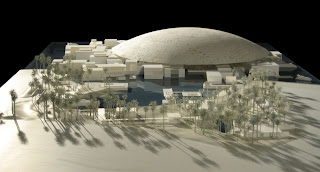30 days later...
It's hard to believe that 30 days have passed since my last post (not the last post, thankfully). December has been a busy, busy month. And I suspect it has been for you as well, dear reader, what with Eid, Christmas, and the rapidly approaching conclusion to 2007. (I am reminded of an email I received from a colleague a few years ago, soliciting support for a needy family at Christmas. She attempted to create a sense of urgency by noting that "Christmas was vastly approaching", but only succeeded in creating an exchange of amusing emails ranging from wondering just how big the season really is {It's huge!} to pirate jokes {Maybe she meant avastly approaching.}) The end of one year and the start of the next is a time of reflection for many people, and I am no exception. 2007 was a great year, and I expect 2008 will be the same. Every year has been a great year. I have been blessed my entire life, with family, friends, health, all the things that truly matter. I...
